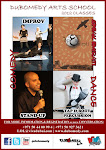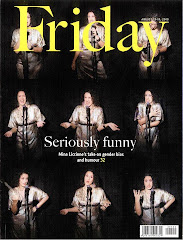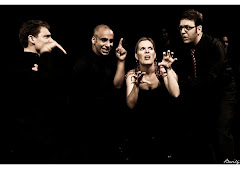
An interview with Nicholas Karavatos – inter-media spoken word artist, AUS Professor and "From the Page to the Stage" guest teacher.
By Sabina Giado
1. What got you interested in spoken word and specifically inter-media performances?
I am a graduate of New College of California with an MFA in Poetics, and of Humboldt State University. To over-simplify the tendrils of influence, when I was a young teen, The Doors released a new album titled An American Prayer. The band took recordings of their late singer Jim Morrison reciting his poems, wrote new music and blended them into a seamless whole. Listening to that was a crystallizing moment for me in the performance of poetry. Then I grew up. As my experiments in improvisatory music grew more serious, I began blending my poetry with music in spontaneous collaborations.
2. What brought you to Dubai?
As I began to be priced-out of San Francisco during the dot-com boom’s near-class war in the city’s Mission District, I looked abroad for employment that would pay my student loans. I first arrived in the Middle East in 2000 to teach EFL at Fujairah Technical School. The next year, I moved to Muscat to teach general studies at Modern College of Business & Science. After 5 years there, I was ready to return home, but before that, I had to find a job. The American University of Sharjah did its hiring much sooner than US institutions, and since it looked like a real good place, I applied. I didn't return home and have happily been a member of the AUS faculty since 2006. I am currently an Assistant Professor in the Department of English.
3. What do you think of Dubai’s performing arts scene?
Living out in University City, I don’t get off The Island as much as a healthy man should, so I don’t know enough about Dubai’s performance scene to comment. As for visiting musicians, I enjoyed Roger Waters; Henry Rollins, author and Black Flag alum, did some fun spoken word; and the Emirates Literary Festival is wonderful, if unapologetically pop-oriented, and until this coming season was at a complete loss when it came to poetry. I’m looking forward to it this year.
4. Tell us a little about your book No Asylum.
David Meltzer, author of Beat Thing and legendary poet and musician of the San Francisco Renaissance, wrote: “Nicholas Karavatos is a poet of great range and clarity. This book is an amazing collectanea of smart sharp political poetry in tandem with astute and tender love lyrics. All of it voiced with an impressive singularity.”
5. What’s next for you?
After the performance at Dubomedy International Performing Arts Festival last November, I boarded a plane to San Francisco. That weekend I performed with long-time collaborator electronic guitarist Jeff Kelley at JFK University in Berkeley, California. Into middle age and no longer a starving artist with my teaching gig, I like to look forward to something new each holiday. Last summer I booked myself a 20-city reading tour throughout the western US in support of No Asylum. Several of these appearances were inter-media spoken word performances. After a winter tour that’s taking me to Salem & Portland, Oregon with Jeff Kelley and a solo reading in Las Vegas, I return to AUS to teach spring semester 2011, along with a round of guest teaching as part of Dubomedy Art School’s “From the Page to the Stage” Writing and Performance Course.
6. Any advice for budding spoken word artists?
Never self-censor. Don’t fall in love with your own writing. Engage with the polyphony of society. Don’t fear the dark, but don’t avoid the light. Speak up. And read, read, read!
More information can be found, including photos, at http://nicholaskaravatos.blogspot.com/






